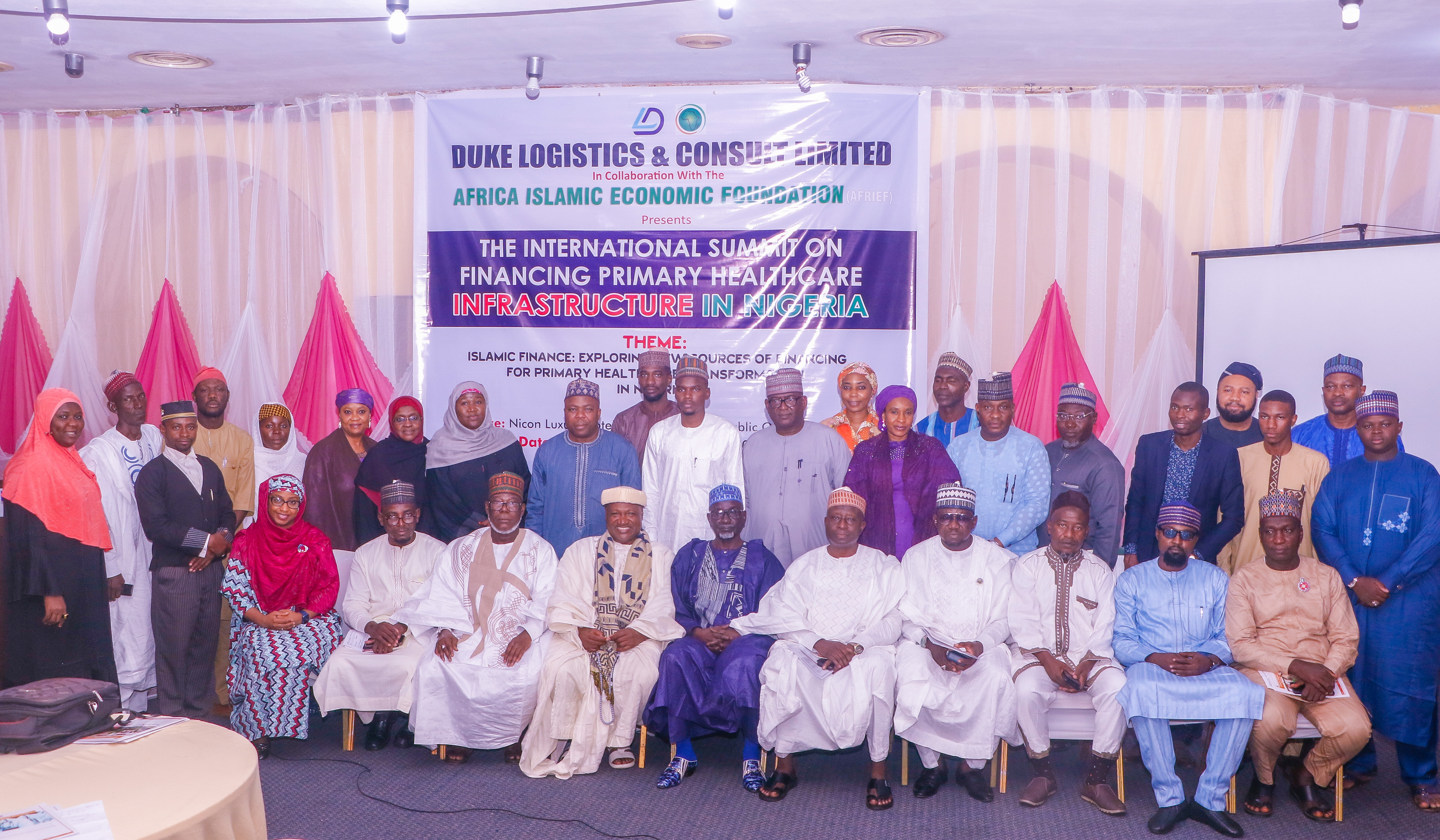The Health Finance Coalition (HFC), powered by Malaria No More, and AfricInvest today announced pledged commitments of $50 million for the pan-African Transform Health Fund, to finance the scaling of proven, innovative models that improve access, affordability, resilience, and quality of healthcare in Africa. U.S. International Development Finance Corporation (DFC), U.S. Agency for International Development (USAID), Royal Philips, Merck & Co., Inc., known as MSD outside of the United States and Canada, FSD Africa Investments, Netri Foundation, Anesvad Foundation, Grand Challenges Canada (with funding from Global Affairs Canada), Chemonics International, and MCJ Amelior Foundation have all announced their commitments, subject to final due diligence before closing. IFC is in the advanced stage of approving its investment in the fund.
The announcement was made as part of the U.S.-Africa Leaders Summit in Washington, D.C. hosted by President Biden. The Transform Health Fund is an innovative blended-finance fund focused on locally led health supply chain, care delivery, and digital solutions in Africa. The fund is a collaborative effort bringing together commercial, government, and donor investments under the leadership of AfricInvest, a leading pan-African investment platform active across private equity, venture capital and private debt, and the Health Finance Coalition, a group of leading global health funders hosted by Malaria No More, to finance enterprises that improve health system resilience and pandemic preparedness across the continent.
The Transform Health Fund will provide debt and mezzanine financing to scale high-impact health enterprises serving vulnerable communities, while offering risk adjusted returns. As a result, the Fund is expected to help bolster healthcare systems in Africa, which face a massive financing gap – a challenge made more difficult by COVID-19 – by working to achieve Universal Health Coverage (UHC).
The Challenge: Africa Faces a Massive Health Financing Gap
While Africa is home to 16 percent of the global population and 23 percent of global disease burden, just 1.6 percent of annual impact investments – now estimated at a market size of $1.16 trillion – target the healthcare sector in Sub-Saharan Africa. Small and medium enterprises (SMEs) are generally left out of this impact investment and the COVID-19 pandemic has made this gap even wider.
The Opportunity: Innovative Financing to Support African Healthcare
To respond to the critical healthcare financing gap in Africa while building a resilient ecosystem, the Transform Health Fund will target three critical areas serving low-income patients: supply chain transformation, innovative care delivery, and digital innovation. The Transform Health Fund investments will target countries across sub-Saharan Africa, with a focus on East, Southern, and Francophone West Africa.
“Three decades of expertise and insight allows AfricInvest to leverage a wide range of support throughout many regions of the continent,” said Ziad Oueslati, Founding Partner, AfricInvest. “We believe our team is well-positioned to continue financing African health-sector companies through innovative financing models such as the Transform Health Fund.”
“The Transform Health Fund will demonstrate that health enterprises serving the most vulnerable communities are investible,” said Martin Edlund, CEO, Malaria No More and Executive Director of the Health Finance Coalition. “To solve the health financing gap in Africa, we need to crowd in substantial private investment – this fund demonstrates a new model for achieving that while prioritizing transformative health impact.”
“Scaling proven solutions in Africa’s healthcare requires adequate investment and innovative financing,” said Noorin Mawani, Co-lead of the Transform Health Fund. “The Transform Health Fund seeks to apportion risk and return while delivering high impact-focused funding to healthcare businesses that need it most.”
“The Transform Health Fund demonstrates what’s possible when you combine a ‘capital stack’ approach to financing with a genuine commitment to transformational impact,” said Ray Chambers, WHO Ambassador for Global Strategy and Health Financing. “But to achieve the world’s ambitious global health goals, we need to urgently scale such efforts – especially as the world recovers from COVID-19 and faces serious macroeconomic headwinds.”
“Working together, we can build a stronger and more resilient healthcare system in Africa by strengthening regional supply chains, delivering care to underserved communities and leveraging the digital economy to provide innovative healthcare solutions,” said Makhtar Diop, Managing Director of IFC. “The rapid pace of innovation witnessed in the health sector provides an opportunity to leapfrog and we look forward to our collaboration with the Transform Health Fund to finance Africa’s health transformation.”
“Since our company’s founding, we have been committed to advancing global health and using the power of science to save and improve lives,” said Robert M. Davis, CEO and Chairman, Merck & Co., Inc. “Creative financing models like the Transform Health Fund can be effective tools to help enable greater access to health, and we welcome the opportunity to partner with like-minded organizations focused on strengthening health systems around the world.”
“DFC is proud to be one of the first supporters of Transform Health Fund whose mission is to invest to strengthen healthcare systems and supply chains across Africa,” said Lauren Cochran, Vice President of Equity and Investment Funds, U.S. International Development Finance Corporation (DFC). “This commitment is an important example of DFC’s work to expand access to quality healthcare services, build the private sector, and empower local communities.”
“As part of our ambition to improve the lives of 2.5 billion people per year by 2030 and in particular the health and well-being of 400 million people in underserved communities, we recognize the important role businesses can and need to play in unlocking financing for Universal Healthcare in Africa,” said Marnix van Ginneken, Philips’ Chief ESG & Legal Officer. “The Fund’s innovative model positions private capital to co-invest and provide impact capital to innovative healthcare delivery models, including digital transformation which is essential to bridging the gap to underserved communities and increasing access to quality and affordable care.”
“We have seen from our work throughout Africa that transformative change happens when local leaders, innovators, and entrepreneurs have the resources, networks, and capital to bring their ideas and solutions to scale,” said Jamey Butcher, President and CEO, Chemonics International. “Chemonics is proud to support the Transform Health Fund, an investment vehicle that will do just that for healthcare in Africa.”
“We are delighted to partner with AfricInvest and The Health Finance Coalition in establishing an investment vehicle that has secured much needed private flows of finance for African healthcare,” said Anne Marie Chidzero, Chief Investment Officer, FSD Africa Investments. “The fund will back an emerging class of private health provision that will improve livelihoods for vulnerable populations. The future of health finance lies in bringing together different types of capital with a common purpose, something we are excited to back through our investment in the Transform Health Fund.”





 TRENDING11 months ago
TRENDING11 months ago
 PROFILE8 months ago
PROFILE8 months ago
 BUSINESS & ECONOMY3 years ago
BUSINESS & ECONOMY3 years ago
 BUSINESS & ECONOMY3 years ago
BUSINESS & ECONOMY3 years ago
 BUSINESS & ECONOMY3 years ago
BUSINESS & ECONOMY3 years ago
 HALAL ECONOMY10 months ago
HALAL ECONOMY10 months ago
 BUSINESS & ECONOMY3 years ago
BUSINESS & ECONOMY3 years ago
 BUSINESS & ECONOMY2 years ago
BUSINESS & ECONOMY2 years ago



